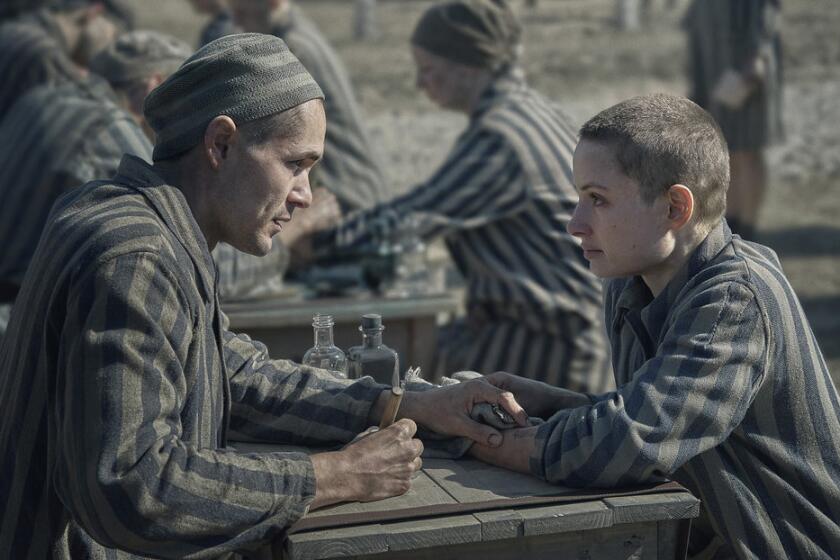Mostly Favorable Reaction to PBS’ ‘Kids’
Despite its explicit drawings and potentially controversial topic, the PBS sex education special, “What Kids Want to Know About Sex and Growing Up,” drew more kudos than criticism, public-television officials said Thursday.
KCET-TV Channel 28 in Los Angeles, for example, received 24 calls after the program aired Wednesday night, only one of them negative. In Salt Lake City, none of the more than 100 calls logged by Thursday morning were negative, according to Scott Chaffin, director of broadcasting for KUED-TV.
The program, a special aired as part of the “3-2-1 Contact” science series, featured a group of children, aged 8 to 13, and their parents asking questions of male and female sex education experts about puberty and sex. It contained line drawings of the human body--including genitalia--a depiction of sexual intercourse, and questions from parents and children about homosexuality and masturbation.
Most PBS stations showed the program Wednesday night; others have scheduled it for the coming week, including KOCE-TV Channel 50 in Orange County, which will show it Thursday at 5 p.m.
And while stations had braced themselves for negative fallout--KUED even set up a special hot line for parents to call and voice their opinions--a limited survey on Thursday found that most of the reaction was favorable.
Officials at the stations and at Children’s Television Workshop, the New York-based company that produced the program, credited their success in part to an unusual plan to inform communities in advance about the show, and to involve parents in its production.
While the program was being made, producers showed segments to groups of parents in Arkansas, Alabama, Iowa and New York, said executive producer Anne MacLeod. Particular attention was paid to the comments of parents who identified themselves as religious conservatives, she said.
Their concern “wasn’t so much the line drawings of anatomy as much as discussions of topics like masturbation and homosexuality, which may be linked to religious beliefs,” MacLeod said. “But even among conservative religious groups (in the producers’ survey), parents felt it was very balanced.”
In addition to involving parents in the production phase, Children’s Television Workshop held a national teleconference, for which members of local communities were invited into the studio of their local PBS station to ask questions, via satellite, of the producers.
The producers suggested that local stations make a point of publicizing and explaining the broadcast through on-air promotions and the local news media, and Children’s Television Workshop also prepared a 24-page parents’ guide to the program, which was to be made available ahead of time, for $2.25. Videocassettes were also made available for purchase at $14.95, with the parents’ guide included.
“We didn’t want rumors to start, with people saying, ‘They’re teaching sex on “Sesame Street,” ’ “ MacLeod said, referring to the fact that Children’s Television Workshop also produces that long-running series for preschoolers.
At WGTV-TV in Atlanta, which broadcast a special parents’ preview of the program on Monday at 11 p.m., spokeswoman Carolyn Kowalski credited advance planning with the positive response the station received.
By midday Thursday, the station had received 19 calls in response to the preview and the regular broadcast, 16 of them favorable, Kowalski said. But she noted that it may be premature to judge the response simply from phone calls. Typically, she said, viewers with positive responses tend to pick up the phone, but those with negative reactions are more likely to write letters.
The complete guide to home viewing
Get Screen Gab for everything about the TV shows and streaming movies everyone’s talking about.
You may occasionally receive promotional content from the Los Angeles Times.



